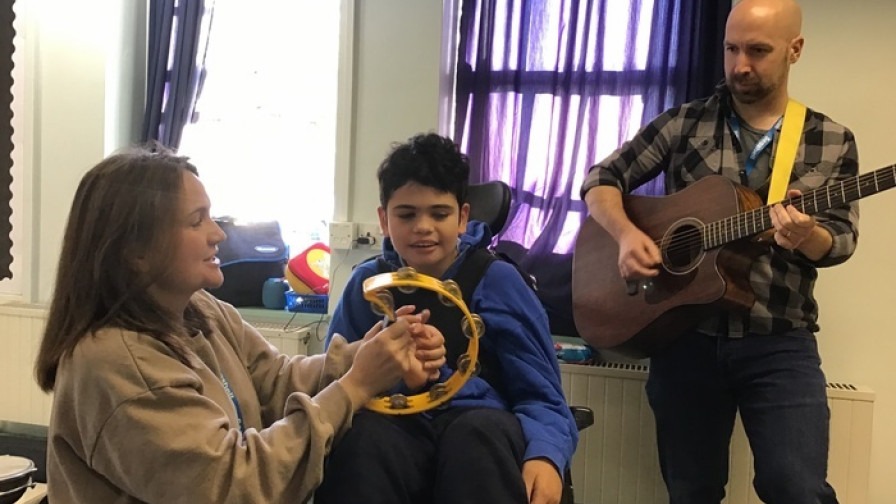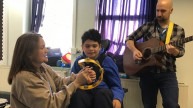Aurhythmics Project

Nothing prepares you for the astonishing transformation of a young deaf-blind adult, as they communicate to us that they recognise a soap opera theme tune. Music captures the attention and engagement of so many of Seashell’s children and young people with complex needs and gives them a unique opportunity for self-expression and emotional regulation. We have observed this many times, but where’s the evidence that music ‘works’? The Aurhythmics Project sets out to demonstrate listening progress in a group of hearing impaired children and young people through the delivery of highly structured music listening programmes. Recording their listening responses has been a revelation as they start to really ‘tune in’ to music and sounds and communicate to us in a myriad of ways that they’ve ‘got’ the activity. Imagine the sheer joy of a child who is trapped in a world of sensory deprivation, realising that they are sharing attention around musical sound and being able to request more of it. Sound is generally transient and we suspect at Seashell that highly complex deaf children and young people bypass critical early listening input due to competing health needs and learn to often block sounds that they are able to hear as meaningless. Our project focusses on breaking sound down to its basic elements using live music and singing and utilising this to develop listening skills. Progress in the main 3 hierarchical domains of listening (detection, discrimination and understanding) is captured through our specialised Seashell Outcome Measure. But is the delivery of weekly live music sessions enough? Clearly not. So wrapped around the structured listening activities are additional programmes to embed the child or young person’s developing functional listening, both in education and the home. So who does this? Another strand of the project is to support and train support staff at Seashell to promote their confidence to deliver motivating listening activities, as well as understand about listening and the importance of a favourable acoustic environment. They say it takes a village to raise a child - we at Seashell say it takes a huge multi-disciplinary team to help a complex deaf child to listen!


